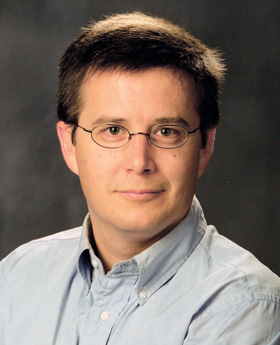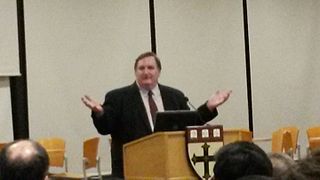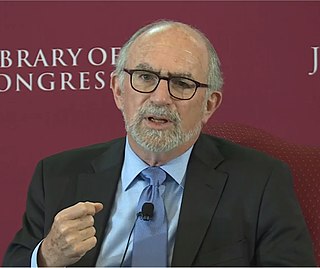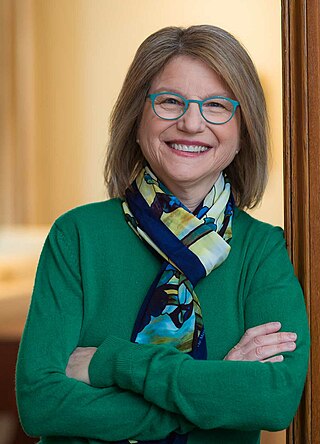Related Research Articles
Trinity College of Arts and Sciences is the undergraduate liberal arts college of Duke University. Founded in 1838, it is the original school of the university. Currently, Trinity is one of three undergraduate degree programs at Duke, the others being the Edmund T. Pratt School of Engineering and Duke Kunshan University.
Albert Carnesale is an American academic and a specialist in arms control and national security. He is a former chancellor of the University of California, Los Angeles, provost of Harvard University, and dean of the Harvard Kennedy School at Harvard University. He was also acting president of Harvard while President Neil L. Rudenstine was on leave for three months. He has also been active in international diplomacy on nuclear arms control and nuclear non-proliferation. From 1970 to 1972, he was a member of the U.S. delegation to the Strategic Arms Limitation Talks with the Soviet Union—a major step towards controlling nuclear weapons. Carnesale teaches undergraduate and graduate courses at UCLA on topics relating to U.S. national security.
The Calgary School is a term coined by Ralph Hedlin in an article in the now defunct Alberta Report in reference to four political science professors – Tom Flanagan, Rainer Knopff, Ted Morton, and Barry F. Cooper – who became colleagues at Alberta's University of Calgary in the early 1980s. They shared and promoted similar ideas about how political scientists could shape the rise of a particular kind of conservatism in Canada – informed by theories based on Friedrich Hayek and Leo Strauss. Cooper and Flanagan had met in the 1960s at Duke University while pursuing doctoral studies, while Knopff and Morton were both mentored by Walter Berns, a prominent Straussian, at the University of Toronto. They were economic, foreign policy, and social conservatives who were anti-abortion and were not in favour of legalizing gay marriage. They supported Stephen Harper in his 1993 election campaign, and former Alberta premiers Ralph Klein and Jason Kenney. A fifth University of Calgary professor, David Bercuson, co-authored publications with Cooper but was more loosely associated with the group and, at times, disagreed with the others on these public policies and candidates.

Peter Douglas Feaver is an American professor of political science and public policy at Duke University and a civil-military relations scholar.
Nannerl "Nan" Overholser Keohane is an American political theorist and former president of Wellesley College and Duke University. Until September 2014, Keohane was the Laurance S. Rockefeller Distinguished Visiting Professor of Public Affairs and the University Center for Human Values at Princeton University. She is now a professor in social sciences at the Institute for Advanced Study, Princeton, where she is researching the theory and practice of leadership in democratic societies.

Robert Owen Keohane is an American academic working within the fields of international relations and international political economy. Following the publication of his influential book After Hegemony (1984), he has become widely associated with the theory of neoliberal institutionalism in international relations, as well as transnational relations and world politics in international relations in the 1970s.

Kelly David Brownell is a clinical psychologist and scholar of public health and public policy at Duke University whose work focuses on obesity and food policy. He is a former dean of Duke's Sanford School of Public Policy. Noted for his research dealing primarily with obesity prevention, as well as the intersection of behavior, environment, and health with public policy, Brownell advised former First Lady Michelle Obama's initiatives to address childhood obesity and has testified before Congress. He is credited with coining the term "yo-yo dieting", and was named as one of "The World's 100 Most Influential People" by Time Magazine in 2006.

Bruce W. Jentleson is a professor of public policy and political science at Duke University, where he served from 2000 to 2005 as Director of the Terry Sanford Institute of Public Policy. He previously was a professor at the University of California, Davis and Director of the UC Davis Washington Center. In addition to his academic career, he has served in a number of foreign policy positions in Democratic administrations.
At Duke University, the title of James B. Duke Professor is given to a small number of the faculty with extraordinary records of achievement. At some universities, titles like "distinguished professor", "institute professor", or "regents professor" are counterparts of this title. Two Nobel laureates currently serve as James B. Duke Professors.

Robert David Johnson, also known as KC Johnson, is an American history professor at Brooklyn College and the Graduate Center of the City University of New York. He played a major role in reporting on the Duke University lacrosse rape case in 2006–2007. In 2007 he co-authored a book, Until Proven Innocent: Political Correctness and the Shameful Injustice of the Duke Lacrosse Rape Case.

Sanford J. "Sandy" Ungar is an American journalist, author, and the inaugural director of the Free Speech Project at Georgetown University. He was the tenth president of Goucher College and the 24th director of Voice of America.
Charles T. Clotfelter is an economist and the Z. Smith Reynolds Professor of Public Policy Studies and Professor of Economics and Law at the Sanford School of Public Policy at Duke University in Durham, North Carolina, where he has taught since 1979. He is also director of the Center for the Study of Philanthropy and Voluntarism at Duke and is a research associate for the National Bureau of Economic Research. His primary research interests include the economics of education, the nonprofit sector, tax policy and public finance.
Bruce R. Kuniholm is an American academic and the former dean of Duke University’s Sanford School of Public Policy. A Professor of Public Policy and History, his field of research expertise is concentrated primarily on U.S. Foreign Policy in the Near and Middle East.
Paula Denice McClain, is a professor of political science, public policy, and African and African American Studies at Duke University and is a widely quoted expert on racism and race relations. Her research focuses primarily on racial minority-group politics and urban politics. She is co-director of Duke's Center for the Study of Race, Ethnicity and Gender in the Social Sciences, and director of the American Political Science Association's Ralph Bunche Summer Institute, which is hosted by Duke and funded by the National Science Foundation and Duke.
The Edmond & Lily Safra Center for Ethics is a research center at Harvard University in Cambridge, Massachusetts. The center's mission is to "advance teaching and research on ethical issues in public life." It is named for Edmond J. Safra and Lily Safra and receives support from the Edmond J. Safra Foundation. The Center for Ethics was the first Interfaculty Initiative at Harvard University.

Sally Ann Kornbluth is an American cell biologist and academic administrator. She began serving as the 18th president of the Massachusetts Institute of Technology in January 2023.

Stephen M. Schewel is an American politician, businessman, and academic. A Democrat, he is the former Mayor of Durham, North Carolina and formerly served on the Durham City Council and as the Vice Chair of the Durham Public School Board. Schewel is also a faculty member at Duke University's Sanford School of Public Policy and a former faculty member at North Carolina Central University. He founded the weekly newspaper Indy Week in 1983, and served as its president until he sold the paper in 2012. In 2010 he co-founded the Hopscotch Music Festival.
Gavin Mark Yamey is a British-American physician and global health researcher. He is the director of the Center for Policy Impact in Global Health at Duke University and a professor of the practice of global health and public policy.
Christian Robert Grose is an American political scientist. He is a professor of political science and public policy at the University of Southern California, academic director of the USC Schwarzenegger Institute for State and Global Policy, and served as director of the Political Science and International Relations PhD Program from 2015 to 2018. He studies behavioral elite decision making in politics, racial and ethnic politics, public policy, voting rights, political representation, and legislative politics.
References
- ↑ "Charney, Evan". Duke University Sanford School of Public Policy. Archived from the original on 2015-10-02. Retrieved 2018-06-03.
- ↑ "Six Scholars Join Faculty". Duke Policy News. Fall 1999. Retrieved 2018-07-09.
- ↑ Fox, Maggie (2016-07-23). "Donald Trump Is Appealing to Fear — Will it Win Him Votes?". NBC News. Retrieved 2018-06-03.
- ↑ Palmer, Brian (2011-08-24). "Double Inanity". Slate. Retrieved 2018-06-03.
- ↑ Judis, John B. (2014-10-25). "Are Political Beliefs Predetermined at Birth?". The New Republic. Retrieved 2018-06-03.
- ↑ Steinmetz, Katy (2010-12-21). "Is There Any Biology Behind Our Political Affiliations?". Time. ISSN 0040-781X . Retrieved 2018-06-03.
- ↑ Khab, Aateen (2018-05-08). "In defense of Professor Evan Charney". The Chronicle. Retrieved 2018-06-03.
- ↑ Berkowitz, Peter (2018-06-02). "Duke Erodes Liberal Education". RealClearPolitics. Retrieved 2018-06-03.